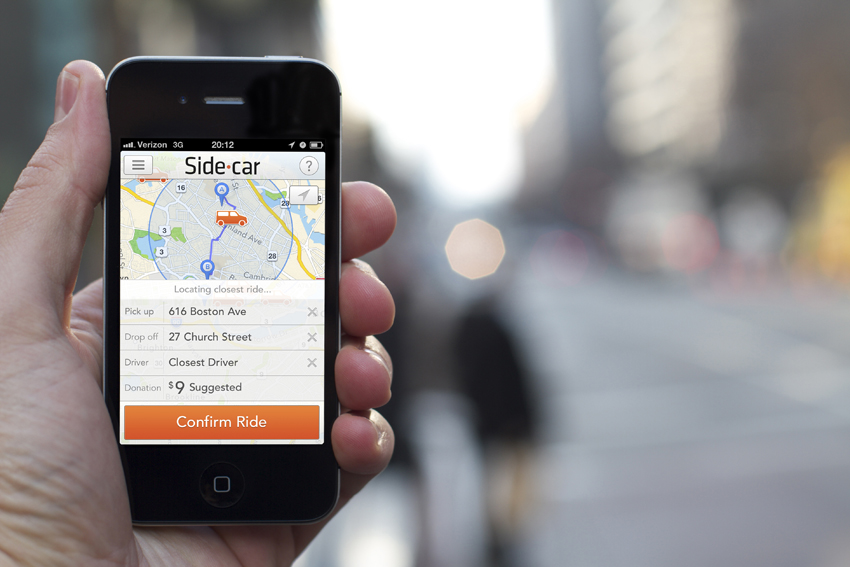SideCar Launches in Boston

Photo provided by Sidecar
If you’ve been paying attention to the heat Uber has been getting lately, both here and across the country, then get ready, because hitching a ride around this city is going to get a lot more interesting. Today marks the Boston launch of SideCar, a San Francisco-based ride sharing company whose mobile app allows everyday drivers to pick up passengers. Think of it as Match.com for rides, and you’ll begin to get the picture.
Users who download the app put in their location and destination, and then can look for a driver nearby who’s heading in the same direction. The drivers are screened through a series of background checks before they can become part of the service, and all money exchanged goes through the phones, so there’s no need for cash. According to their public policy director David Phillips, the goal is to essentially digitize the informal ride-sharing systems that have already evolved in other major cities to let drivers better utilize HOV lanes: in San Francisco its called casual carpooling, and in D.C. it’s been dubbed slug lining. “We say we are match, not dispatch,” he says. And that’s an increasingly important distinction.
Although these “e-hailing” apps have users excited, it doesn’t mean it’s been a simple project to get off the ground: The company, along with other apps Lyft, Hailo, and Uber, have been facing regulatory challenges in several cities where they’ve already launched as they bump up against the taxi, limousine, or livery laws in each jurisdiction. Last week, right before the start of South By Southwest, Austin passed a law that made sharing rides for cash against the law. A day later, SideCar filed a lawsuit stating that they feel that ride sharing is legal and offered free rides to everyone. (Lyft responded by offering people piggy back rides.)
So what does that mean for Boston? It’s likely too soon to tell. This week, Boston Cab Dispatch announced plans to sue Uber, and yesterday, they replied on their blog stating that the claims were baseless. Phillips holds that the differentiating factor between SideCar and the other apps is that is that a passenger must plug in both the location and destination before looking for a ride, thereby avoiding the notion that they’re a dispatch service.
“We try to make very clear that this is not a commercial transportation service,” Phillips says. “It’s about drivers who are driving anyway, and participating in the spirit of carpooling and ride sharing.”
Now it’s a wait-and-see game as to how well it fares.


